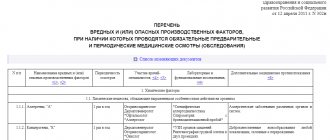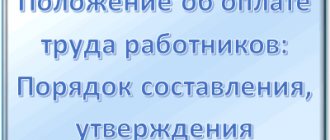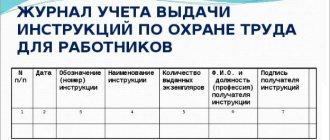Terms of reward for work
The incentive method is considered one of the most effective ways to ensure labor discipline. With the help of various incentive mechanisms, the employer is able to motivate its employees, regardless of their education, to perform a large amount of work, and can also create the most friendly relations between staff and help get rid of penalties imposed for poor performance of duties.
One of the key needs of a person, regardless of his education, is the need for recognition of his activities, as well as financial incentives.
In this situation, the incentive system will use rewards, which will manifest themselves in the form of a material incentive to do their work better and faster.
In accordance with Article 191 of the Labor Code of the Russian Federation, the employer has the right to motivate its employees, regardless of their education, using a variety of incentive methods, in particular through additional remuneration. However, there is a small caveat, according to which such practice should be applied exclusively to those employees who demonstrate high work and disciplinary results, as well as carefully and conscientiously fulfill their professional duties.
Rewards may take the form of:
- material incentives (bonuses, additional vacation pay, etc.);
- conditional thanks (certificates, nomination for the title of best specialist among the staff, assistance in obtaining additional education, etc.).
Depending on the duties performed, remuneration may be:
- internal;
- external
In the first case, satisfaction of human needs is provided by the work itself, namely, awareness of the social importance of the work mission, its content and significance.
In order to be able to stimulate its employees, the employer needs to create conditions under which the employee will not lack professional tools for his work. In addition, it is necessary to set a clear task for the employee, indicating the deadlines for its implementation and incentives for work, as well as define the rights and responsibilities of the employee and indicate the penalties that can be applied in case of inadequate quality of work.
The incentive system must be expedient and effective. And in order to achieve its goals, the employer must follow certain rules, in particular:
- It is necessary to encourage only those employees who conscientiously fulfill their professional duties at every manifestation of their labor activity;
- the reward must be significant so that the prestige of the labor mission is as high as possible;
- the employee must be sure that by demonstrating good disciplinary performance he will be rewarded as soon as possible, and not after several months or years (thus, payment of incentives should be extremely fast);
- any encouragement must be public in order to maximize the employee’s reputation among the company’s personnel;
- the opportunity to pay incentives for work performed should be available not only to strong employees, but also to their weaker colleagues (in this way, there will be no differentiation of personnel based on the quality of work and high discipline in the team will be maintained);
- if a penalty is imposed on an employee, he should be relieved of it as a reward for previously high work activity and assistance in innovative solutions;
- incentive payment should not depend on the employee’s education, since all employees, regardless of education and social status, are entitled to incentives.
An example of depriving an employee of a bonus (deprivation of a bonus for violation of labor discipline)
Let's simulate an example of a situation where it is possible to deprive a bonus due to violations of discipline.
PremiumNet LLC has a Regulation on bonuses. According to clause 12 of the Regulations, all employees of the company are paid monthly bonuses for fulfilling the work plan at the end of the month. Clause 15 of the Regulations establishes that if an employee is brought to disciplinary liability during the month for which bonuses are accrued, the monthly bonus is not paid.
Engineer Ivanov A.A. fulfilled the plan for February 20__, which earned him a monthly bonus. However, on February 12, 15, 17, he was late for work, for which on February 20 an order was issued to bring him to disciplinary liability in the form of a reprimand. In this regard, the general director of the company, Chichikov O.V. issued an order to deprive Ivanov A.A. monthly bonus based on clause 15 of the Regulations on bonuses. This penalty is legal, since Ivanov A.A. deserved the award, but committed actions that constitute grounds for deprivation of it.
The deprivation of a bonus should not be confused with the employee’s failure to comply with the terms of the bonus. For example, if Ivanov A.A. did not fulfill the plan for February 20__, he would not have been entitled to bonuses. Failure to comply with bonus conditions is not deprivation of a bonus, since the employee did not deserve bonus payments, and there is no reason to deprive him of them.
***
Thus, deprivation of a bonus under the Labor Code of the Russian Federation is possible if the procedure is determined by some internal act, namely a local act, a collective agreement, or an agreement.
Types of incentives
As stated in Article 191 of the Labor Code of the Russian Federation, for any performance of official duties, thanks to which the productivity and quality of labor increases significantly, the introduction of innovative approaches to the implementation of work activities, as well as long-term performance of duties under labor agreements without comments, an employee, regardless of education, should be subject to encouragement in the form of additional financial payment for work results or gratitude.
Material reward for an employee is a one-time reward for conscientious work issued in the form of cash bonuses or valuable gifts, or additional payment for work (the so-called 13th salary).
In this situation, the hired employee will work more carefully in the future in order to receive additional material rewards and increase his status among the staff.
Non-material disciplinary rewards, unlike material ones, can satisfy a person’s need for recognition, thereby raising his prestige and respect in the team. The legislative framework stipulates that such an incentive system can include various types of public gratitude, issuing letters of encouragement, nominating an employee for the title of best specialist in a certain category, canceling a disciplinary sanction, and much more.
Article 191 of the Labor Code of the Russian Federation also provides a slightly different classification of all mechanisms of the incentive system. In particular, the following types of incentive systems are distinguished:
- according to the method of general influence on the employee, such types as moral and material reward are distinguished;
- according to registration in legislative acts - legal and non-legal reward;
- in accordance with the scope of action, there are the following types of incentives - principles of general and special type remuneration;
- in terms of general importance for personnel, grounds such as rewards for successful performance of work duties and encouragement for special labor merits are identified (for example, the abolition of penalties for high rates of work activity and the absence of problems with factors such as discipline or payment for vacation, or treatment in a sanatorium ).
It is worth noting that due to the fact that each person, regardless of general education and status, has his own hierarchy of needs, the incentive system and its types should pursue their policy in the field of labor law as expediently as possible. For example, a person with fairly high financial income may not be happy about another bonus, but publicly expressed gratitude will allow him to achieve maximum satisfaction and will contribute to the highest possible work performance in the future. Moral satisfaction in this case will be preferable.
It is also worth paying attention to the fact that these types of general incentives are not a complete list.
Depending on the characteristics of the work and the field of activity, slightly different ways of stimulating high work results may be established. Basically, in most cases, issues related to the personnel incentive system at a particular enterprise will be regulated by the labor agreement and internal work regulations.
The relationship between punishment such as deprivation of bonuses and disciplinary offenses
The procedure for applying disciplinary sanctions and their types are established in Art. 192 Labor Code of the Russian Federation. Penalties may include reprimand, reprimand, or dismissal. Other laws, Charters, Regulations may provide for other types of disciplinary sanctions.
Deprivation of bonuses is not a disciplinary sanction. This is also evidenced by judicial practice, for example, the Determination of the Moscow City Court dated June 17, 2010 in case No. 33-18087. If a disciplinary measure such as deprivation of a well-deserved bonus is applied to an employee, he can challenge it in court, or contact the State Labor Inspectorate.
However, the imposition of a disciplinary sanction may serve as grounds for depriving an employee of a bonus. This is possible if one of the internal acts of the organization states that the basis for deprivation of a bonus is the application of disciplinary measures to the employee. When such provisions are not specified in internal regulations, it is impossible to deprive an employee of a bonus for committing a disciplinary offense.
Procedure and methods of encouragement
As practice shows, the greatest success in work is achieved by those employees who clearly know and realize that any of their actions in the labor sphere, which will somehow improve the work process and increase productivity, and also help establish order in the company, will cause grounds to further stimulate high performance results.
As an incentive, measures and grounds can also be applied to prevent disciplinary action for previous mistakes. For example, if an employee produced defective products, he faces penalties for this, but if over the next period of time he corrects himself and helps improve the quality of the product, then he should be exempt from penalties. In addition, those employees who have many years of positive work experience without complaints may be exempt from penalties. In this situation, release from penalties will be perceived as a reward for good work.
Many experts believe that one of the main mechanisms of the personnel incentive system is publicity.
As a basis, publicly rewarding and expressing gratitude from management significantly increases the incentive of the work process and allows you to create an atmosphere of competition in the company, where employees will perform their duties more carefully in order to earn encouragement in the form of additional pay from the employer.
In the case of the formation and application of new technologies as a result of the employee’s activity, the employer must also stimulate his work principles in order to thus reward his activity by introducing a certain procedure for applying the reward system.
The procedure for applying incentives should consist of several main stages:
- issuing an order on incentive measures in relation to a specific employee;
- registration of the promotion in the registration register, which is stored for at least 75 years;
- familiarization of the awarded employee with the order;
- informing all working personnel about bonuses to their colleagues or exemption from penalties;
- issuing incentives in the form of payment or gratitude and entering information about it into the employment contract, work book and other documents related to the work process.
Speaking about methods of encouragement, it is necessary to note their material and intangible nature in the sphere of public relations. The administration has the right to independently determine how exactly an employee with good results of work activity will be awarded, however, with all this, the process must take place in such a way as to maximally satisfy the employee’s needs for self-realization and recognition of his merits and lead to an increase in his education in the field of official duties.






